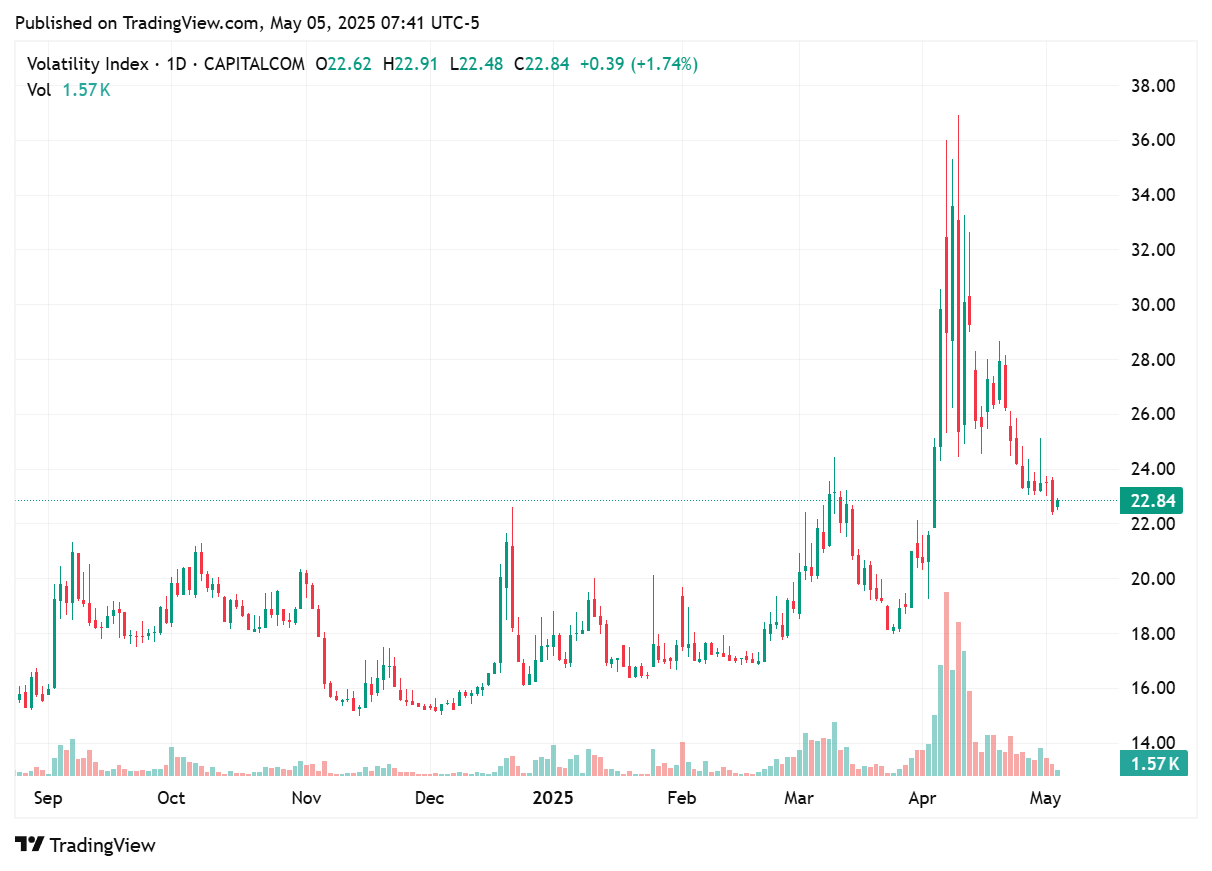Week 18 (April 28-May 4, 2025)
Last week highlighted a delicate balance between resilient economic fundamentals and rising uncertainty from trade policy, slowing growth, and shifting consumer behavior.
The U.S. economy showed resilience in corporate earnings and the labor market, but growth is slowing, and uncertainties around tariffs, trade, and consumer demand persist.
Tariffs remained a central concern for businesses, affecting both costs and sentiment. There was some improvement in the tone of U.S. trade negotiations, but companies continued to express caution, particularly those with significant exposure to China and global supply chains.
Major technology firms like Microsoft and Meta reported continued high capital expenditures in AI and datacenter infrastructure, signaling ongoing investment despite policy uncertainty. However, consumer-focused companies such as Amazon, Apple, and McDonald’s expressed caution, citing weaker sales in China and softer consumer demand, especially among lower-income groups.
First-quarter GDP growth was negative, but consumer spending-especially on automobiles-remained healthy, partly due to a rush to buy ahead of anticipated tariff increases. Nonautomotive consumer spending and travel (both personal and business) declined, with a notable drop in visits by foreigners.
The U.S. unemployment rate in April 2025 was 4.2%, unchanged from March and consistent with market expectation. This rate has remained in a narrow range of 4.0% to 4.2% since May 2024. The number of unemployed people stood at approximately 7.2 million in April.
The Global Manufacturing PMI, compiled by S&P Global Market Intelligence and sponsored by J.P. Morgan, declined from 50.3 in March to 49.8 in April, slipping below the neutral 50 mark and signaling a slight deterioration in overall manufacturing conditions for the first time this year.
Global markets remain volatile, with oil prices and bond yields reacting to shifting economic and geopolitical dynamics. Equity markets worldwide experienced sharp declines before rebounding, with risk aversion driving investors toward safe-haven assets like U.S. Treasuries.
Markets are increasingly betting on multiple Fed rate cuts in 2025, reflecting concerns about a potential recession.
The next Federal Open Market Committee (FOMC) meeting is scheduled for May 6–7, 2025. At this meeting, the Fed is widely expected to keep the federal funds rate unchanged at its current range of 4.25% to 4.5%. The Fed’s “wait and see” approach-especially regarding the economic impact of tariffs and inflation-means mortgage rates will likely remain near current levels for now, with movement hinging on future signals about rate cuts or economic risks.
The immediate direction of U.S. markets is upward but fragile, with volatility likely as investors digest new tariffs and await Fed guidance. The market’s next move will depend heavily on the Fed’s commentary and any developments in trade policy this week.
As of Friday, CNN’s Fear and Greed Index fell back into the "fear" category after briefly reaching "neutral" the previous day for the first time since February 19. The index had been firmly in "fear" and "extreme fear" territory for the past two months, reflecting persistent investor anxiety over trade tensions and economic uncertainty.
The CBOE Volatility Index (VIX) remained elevated, reflecting ongoing market uncertainty.
If you found this post valuable, please consider subscribing. We provide high-quality macroeconomic and financial analysis and education for anyone eager to deepen their understanding of the financial markets and the economy.



